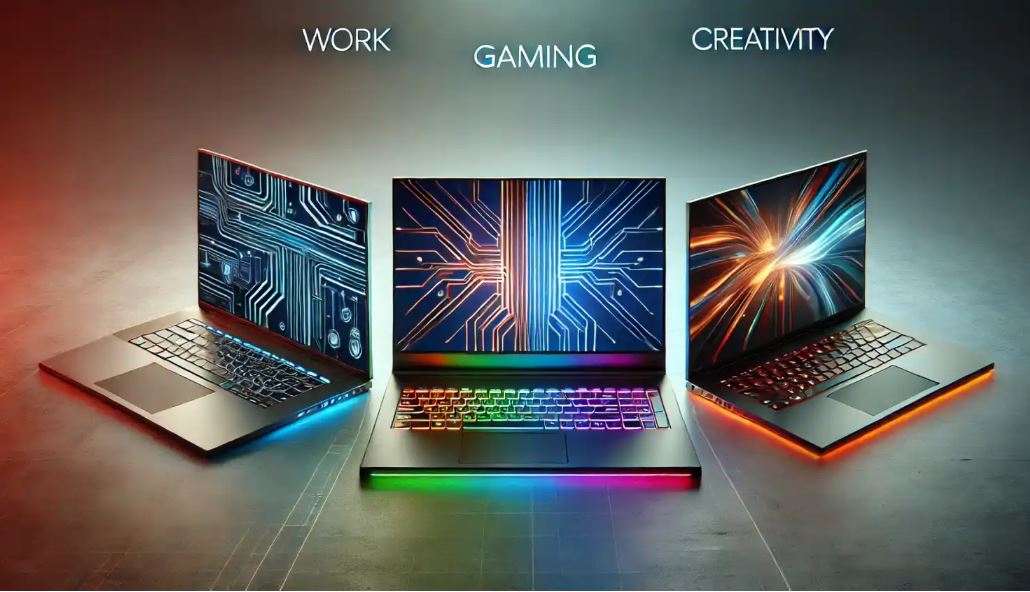In boardrooms across the globe, one debate is starting to overshadow all others: What laptop will power the enterprise of the future? The AI laptop market, once dismissed as a consumer experiment, is now a $124.21 billion powerhouse on track to triple by 2033. With Windows 10 support sunsetting in October 2025, CIOs and IT leaders are staring at a massive refresh cycle, one that could define productivity, security, and competitiveness for the next decade. This is not just about faster chips or flashier designs. It is about who can deliver the ultimate business co-pilot.
Will Dell’s hardware-first innovation, HP’s sustainability play, Lenovo’s scale, Apple’s seamless integration, or Asus’s performance gamble win the trust (and budgets) of enterprise buyers?
Why Enterprises Are Betting Big on AI Laptops
AI laptops (Copilot+ devices) are not just fancy gadgets. They represent a strategic shift in computing. By embedding neural processing units (NPUs) directly into laptops, businesses can run AI workloads on-device instead of relying heavily on the cloud. That means faster insights, lower latency, and reduced costs critical for industries like finance, healthcare, and manufacturing.
Moreover, security and compliance are huge selling points. Processing sensitive data locally instead of sending it to the cloud reduces exposure to cyber threats and ensures better control over regulatory compliance. In short, AI laptops are becoming the new standard for enterprise-grade security and performance.
Apple: Quiet Enterprise Challenger
Apple has traditionally been consumer-first, but things are changing fast. The company’s built-in Neural Engine seamlessly handles AI tasks like design automation, language translation, and creative workflows making it the go-to choice for marketing, design, and creative teams.
With BYOD (Bring Your Own Device) policies still common in enterprises, Apple benefits from user preference. More employees are pushing IT departments to support MacBooks as official enterprise devices. While Apple may not match Lenovo’s or Dell’s scale, its ecosystem loyalty and seamless integration could help it quietly capture enterprise mindshare.
Lenovo: Playing the Scale Game
Lenovo has quietly positioned itself as the frontrunner in the enterprise AI laptop market. Its ThinkPad X1 AI series is being rolled out aggressively across corporate accounts, focusing on durability, IT management tools, and global support.
The real strength of Lenovo lies in its supply chain resilience, a critical advantage in an era of geopolitical and trade disruptions. Enterprises that prioritize stability and reliable delivery are likely to stick with Lenovo, making it the safe bet in this race.
Dell: Betting on Hardware Innovation
Dell is making bold moves to differentiate itself. Its newly launched Pro Max Plus is the world’s first enterprise laptop with a dedicated NPU capable of running 100B+ parameter AI models directly on-device. That is a massive leap for businesses that rely on AI-heavy workloads like financial modeling, supply chain forecasting, and R&D simulations.
Dell’s play is clear: while others push incremental upgrades, it wants to own the innovation narrative. For CIOs who value sovereignty, performance, and reducing dependency on cloud-based AI services, Dell’s AI-first hardware strategy could be game-changing.
HP: Marrying AI with ESG Goals
While others chase raw performance, HP is doubling down on sustainability and hybrid work. Its OmniBook Ultra Flip 14, designed with AI optimization, is marketed as the ultimate device for collaboration and remote productivity. More importantly, HP is experimenting with remanufactured AI laptops through partnerships with Circular Computing.
This approach could give HP a unique edge. For enterprises under ESG and CSR mandates, buying laptops that are both AI-powered and eco-friendly helps hit sustainability targets without compromising productivity. In a future where green procurement policies become the norm, HP might capture an outsized share of the B2B AI laptop market.
Asus: Dark Horse Challenger
Traditionally seen as a gamer’s brand, Asus is now expanding into enterprise with AI-ready laptops powered by AMD Ryzen AI processors and Nvidia RTX GPUs. The company’s advantage lies in raw compute performance, something enterprises in engineering, simulation, and data-heavy industries can’t ignore.
Though Asus lacks Lenovo’s enterprise reputation, its aggressive innovation and pricing strategy could help it win over small-to-mid enterprise buyers looking for powerful but cost-effective AI PCs.
Real Battle: Ecosystems, Not Specs
For enterprises, the competition will not be won by specs alone. It is about ecosystems and long-term value.
- Lenovo’s strength: reliability and global reach.
- Dell’s edge: cutting-edge AI hardware for enterprise-scale workloads.
- HP’s play: AI plus sustainability for ESG-driven buyers.
- Apple’s bet: ecosystem lock-in and creative team adoption.
- Asus’s wildcard: performance-to-cost ratio for AI-heavy industries.
According to the latest reports, 100 million AI PCs are expected to ship in 2025, accounting for 40% of the total PC market. By 2028, this figure could exceed 205 million units, cementing AI laptops as the default enterprise device.
Who Will Own the Enterprise Segment? The AI laptop market is all about faster chips and who can deliver the best business co-pilot for the future of work. Lenovo brings stability, Dell pushes innovation, HP aligns with ESG priorities, Apple wins with seamless ecosystems, and Asus disrupts with performance. For enterprises, the decision does not correspond to which laptop looks best, but which brand can become a strategic partner in productivity, security, and sustainability.
















